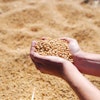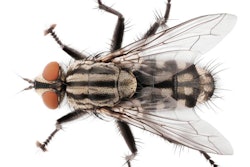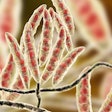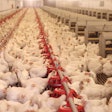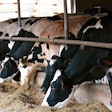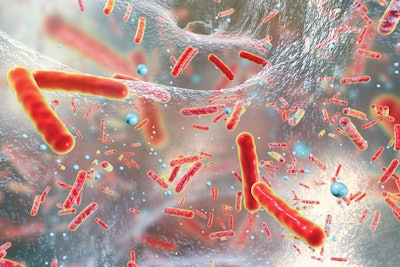
Project aims to identify, eliminate link between antibiotic resistance and manure
A new study underway at Iowa State University aims to provide animal producers with new tools to prevent antibiotic resistance — not by eliminating or replacing antibiotics, but by changing the way manure is handled.
While manure is an effective way to fertilize crops, it could also contribute to the spread of antibiotic-resistant bacteria, according to Adina Howe, an assistant professor of agricultural and biosystems engineering at Iowa State University. Antibiotic-resistant bacteria grow in the gut of livestock treated with antibiotics, she said, and those bacteria may end up in manure that is spread on fields to grow produce eventually fed to humans, allowing the antibiotic-resistant bacteria to spread.
Over the next five years, Howe and her research partners will study the degree to which this pathway contributes to the global rise in antibiotic resistance. The study, backed by a $1 million grant from the U.S. Department of Agriculture, will also investigate potential treatments to eliminate these bacteria from manure, potentially opening up new options for animal producers to continue to use antibiotics in the face of increased regulatory scrutiny.
“This industry is becoming more heavily regulated and is under increased scrutiny,” Howe said. “Understanding how we can mitigate manures and treat bacterial elements is useful not only for human health, but for the sustainable development of these industries.”
Howe is working with producers to identify feasible methods for treating manure, which will be tested over the duration of the study.
The team plans to test four different treatment options — composting, anaerobic digestion, liming and aeration. If coupled with two-phase separation of liquid and solid components, Howe said anaerobic digestion and even composting should be effective in removing potentially antibiotic-resistant bacteria from manures, and should also be economically and technically feasible for producers.
To formally test the efficacy of each treatment, Howe’s team plans to prepare samples of manure using each of the treatment methods, and then apply samples to a substrate containing antibiotics to determine how many antibiotic-resistant bacteria continue to grow within the manure.
Howe said Iowa State will likely begin running the experiments this year. Meanwhile, the project team is conducting workshops with animal producers to evaluate how each of the treatment methods in question could be integrated into livestock operations.

